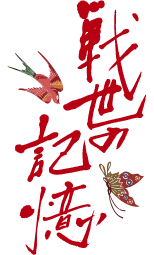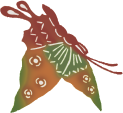
“Painful war experiences and the miraculous reunion with my mother”
“Painful war experiences and the miraculous reunion with my mother”
Housei Nakoh, 80 years old
(Place of birth: Shuritera Town, Naha City, Okinawa Prefecture)
The war started in April when I was in the fourth grade at a national elementary school. Till then, we trained by stabbing a straw figure with a bamboo spear or did fire-fighting drills carrying buckets every day. We just did not know then what war was like and, I remember, we were afraid of our teachers and police the most.
Before very long, the American planes called Grumman and Curtiss flew over and bombed all over the city. The city was a blazing inferno and we had to evacuate from one shelter to another.
As my family was big, with 13 members including myself, we broke up in two groups and hid at different locations.
We were hiding in two different burial chambers on a slope. It was the rainy season and while the chamber on the upper side of the slope did not collect rain water since all rain water drained out and flowed downward, the chamber on the lower side had a pool of water because of the rain water which kept flowing in.
My younger brother, grandfather and aunt hid in the upper chamber. They were killed by two hand grenades thrown into the chamber, which blew them up into pieces, even their bones and internal organs. The hand grenades were thrown into the lower-side chamber as well, where we were hiding, but because of the pool of water, the hand grenades did not go off.
When the hand grenades were thrown into the burial chamber that we were hiding in, my father and I escaped from the chamber leaving my wounded mother behind. While we were running away in a sugarcane field holding hands, I was shot with a carbine. I was wounded and so thirsty. I told my father, “I need water,” he replied, “I will go and get some,” but he never returned. I was told at later date that he was burnt to death with a flame thrower.
I have a scar made by trench mortar gunfire. A red-hot shell splinter penetrated my body. The bullet fired from the carbine penetrated my body from my chest to my back. To make things worse, the maggots which bred at the wound made by the trench mortar gunfire caused my wound to slowly fester and I felt strange and stinging pain.
I passed out due to acute and overwhelming pain. When I came to, I found myself in a dazzling light. I thought, “Oh, I am still alive,” and I felt thirsty again. I tried to urinate to drink my urine only to fail and I passed out again.
While I was half-conscious, I saw four or five American soldiers come to me and felt them kicking me. When they realized that I was still alive, they put me on a stretcher and carried me to their field hospital for medical treatment. At the field hospital, an American soldier opened a can in a C-Ration (individual combat food for American soldiers) and offered it to me, but I kept my mouth closed and refused to eat because we were taught that anything given by American soldiers was poisonous. Then the soldier ate the canned food himself first to show me that it is safe to eat after saying, “It is OK. It is safe.” I started eating the food without any worries since then.
The American Army Hospital was at the entrance of the current Ginowan City Convention Center. After receiving medical treatment there, I was sent to a refugee camp in Goya, Okinawa City, then further to Koza Orphanage in Kamara, Okinawa City. Because there still were battles going on in the south, many small children were sent to the orphanage. I was nine years old, but I was the oldest there.
I was awarded the first prize in the foot race in the athletic meeting held at the elementary school, called Murokawa Elementary School, across the street from the orphanage. One of the people who lived close to my parents’ house in Shuri happened to be at the athletic meeting and saw me win the race. This is how I was identified and taken to Ginoza by a Jeep driven by an American soldier. To my surprise, there was my mother whom I left in the burial chamber and thought was dead. I was so happy I thought that I was dreaming. I was completely speechless.
(Looking back at the war)
I never want to experience war again. If I had to go through what I have been through during the war again, I would rather die.
Housei Nakoh, 80 years old
(Place of birth: Shuritera Town, Naha City, Okinawa Prefecture)
The war started in April when I was in the fourth grade at a national elementary school. Till then, we trained by stabbing a straw figure with a bamboo spear or did fire-fighting drills carrying buckets every day. We just did not know then what war was like and, I remember, we were afraid of our teachers and police the most.
Before very long, the American planes called Grumman and Curtiss flew over and bombed all over the city. The city was a blazing inferno and we had to evacuate from one shelter to another.
As my family was big, with 13 members including myself, we broke up in two groups and hid at different locations.
We were hiding in two different burial chambers on a slope. It was the rainy season and while the chamber on the upper side of the slope did not collect rain water since all rain water drained out and flowed downward, the chamber on the lower side had a pool of water because of the rain water which kept flowing in.
My younger brother, grandfather and aunt hid in the upper chamber. They were killed by two hand grenades thrown into the chamber, which blew them up into pieces, even their bones and internal organs. The hand grenades were thrown into the lower-side chamber as well, where we were hiding, but because of the pool of water, the hand grenades did not go off.
When the hand grenades were thrown into the burial chamber that we were hiding in, my father and I escaped from the chamber leaving my wounded mother behind. While we were running away in a sugarcane field holding hands, I was shot with a carbine. I was wounded and so thirsty. I told my father, “I need water,” he replied, “I will go and get some,” but he never returned. I was told at later date that he was burnt to death with a flame thrower.
I have a scar made by trench mortar gunfire. A red-hot shell splinter penetrated my body. The bullet fired from the carbine penetrated my body from my chest to my back. To make things worse, the maggots which bred at the wound made by the trench mortar gunfire caused my wound to slowly fester and I felt strange and stinging pain.
I passed out due to acute and overwhelming pain. When I came to, I found myself in a dazzling light. I thought, “Oh, I am still alive,” and I felt thirsty again. I tried to urinate to drink my urine only to fail and I passed out again.
While I was half-conscious, I saw four or five American soldiers come to me and felt them kicking me. When they realized that I was still alive, they put me on a stretcher and carried me to their field hospital for medical treatment. At the field hospital, an American soldier opened a can in a C-Ration (individual combat food for American soldiers) and offered it to me, but I kept my mouth closed and refused to eat because we were taught that anything given by American soldiers was poisonous. Then the soldier ate the canned food himself first to show me that it is safe to eat after saying, “It is OK. It is safe.” I started eating the food without any worries since then.
The American Army Hospital was at the entrance of the current Ginowan City Convention Center. After receiving medical treatment there, I was sent to a refugee camp in Goya, Okinawa City, then further to Koza Orphanage in Kamara, Okinawa City. Because there still were battles going on in the south, many small children were sent to the orphanage. I was nine years old, but I was the oldest there.
I was awarded the first prize in the foot race in the athletic meeting held at the elementary school, called Murokawa Elementary School, across the street from the orphanage. One of the people who lived close to my parents’ house in Shuri happened to be at the athletic meeting and saw me win the race. This is how I was identified and taken to Ginoza by a Jeep driven by an American soldier. To my surprise, there was my mother whom I left in the burial chamber and thought was dead. I was so happy I thought that I was dreaming. I was completely speechless.
(Looking back at the war)
I never want to experience war again. If I had to go through what I have been through during the war again, I would rather die.


